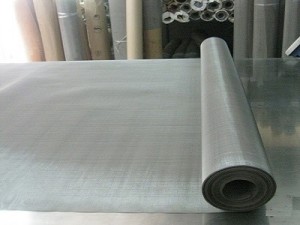
Heavy duty performance strainers for high temperature environments
One of the major design factors when choosing a strainer is specifying the perforation or mesh size of the straining element. The straining element refers to screen for strainers and basket for is a mechanical filter that removes and keeps particles large to pass through yet permits the flowing media to pass unobstructed. With cleaning the flowing media, the straining element helps to secure the expensive downstream like pumps, meters, spray nozzles, turbines etc.
A strainer should be configured ahead of pumps and other downstream systems to ensure their proper protection and safe operation. It also helps protect from scale and accidently supplied items like nuts or bolts.
Material of construction
Irrespective of the strainer housing material used, most common construction material used for straining elements is stainless steel. It is because of the inherent corrosion resistance provided by stainless steel. Use of Monel mesh in strainer is also available upon application.
Mesh types
Usually, the strainer elements are made in following types: Perforated, Wire mesh and reinforced mesh
Perforated mesh comes with a wide range of perforation sizes. To make the selection process easier, a standard perforation size fit for the regular service of each type strainer should be chosen. A standard perforation size is determined to provide the required balance of open area ratio, hole arrangement and gauge thickness that results in the nominal pressure drop. For Monel mesh, the smallest perforation available is normally twice the thickness of material. Instead using light gauge metal sheet that would be required in receiving outstanding small perforations, we prefer using heavy gauge perforated metal screens with large perforations. Certainly this is not feasible with lighter gauge metals in small size strainers.
But, for the finer straining applications, even below to 40 micron, wire mesh straining elements are used. Using a mono-filament, plain square wire mesh, a very low flow resistance is obtained. Common types of weaves are plain dutch and twilled dutch weave. The standard mesh sizes are available for regular service for each type of strainer. Unsupported mesh elements are only used in strainers below 2 inches in size and serving for low pressure applications. In case of large strainers, finer mesh sizes and higher pressure applications, durable mesh screens should be used.
While mesh screens offer satisfactory performance for small sizes of strainers, they are unfit for larger strainers unless furnished as a liner for perforated screen. Wire mesh screens are primarily fit for very fine straining with holes extremely small that are not possible in perforated metal.
Monel mesh strainers offer high quality service and are suitable for diverse applications such as water, steam and oil. They are made in various choices of perforated and woven mesh screens. Monel alloy is known for its high strength and outstanding corrosion resistance over a large range of temperatures and service conditions. It is resistant to oxidizing and reducing conditions for vigorously corrosive environments at high temperatures.
